
Afife: A Hidden Gem in Ghana
Explore the captivating village of Afife, nestled in the heart of Ghana. This serene locale is known for its lush landscapes and warm, welcoming community. Afife offers a unique blend of natural beauty and cultural richness that makes it a perfect escape from the hustle and bustle of city life. The local markets are a must-visit, where you can find an array of traditional crafts and fresh produce. The vibrant colors and friendly vendors provide an authentic Ghanaian experience. Don't miss the chance to sample local delicacies and immerse yourself in the village's daily rhythms. Nature enthusiasts will find Afife a paradise with its scenic trails and abundant wildlife. The nearby rivers and forests offer great opportunities for hiking, bird-watching, and photography. Whether you are looking to relax or seek adventure, Afife caters to all kinds of travelers.
Local tips in Afife
- Visit the local markets early in the morning to experience the freshest produce and most vibrant atmosphere.
- Bring comfortable walking shoes for exploring the scenic trails and natural surroundings.
- Try the local dishes, especially the street food, to get a true taste of Afife's culinary delights.
- Engage with the locals to learn about their culture and traditions, which will enrich your travel experience.
- Carry insect repellent and sunscreen, as you will be spending a lot of time outdoors.
Afife: A Hidden Gem in Ghana
Explore the captivating village of Afife, nestled in the heart of Ghana. This serene locale is known for its lush landscapes and warm, welcoming community. Afife offers a unique blend of natural beauty and cultural richness that makes it a perfect escape from the hustle and bustle of city life. The local markets are a must-visit, where you can find an array of traditional crafts and fresh produce. The vibrant colors and friendly vendors provide an authentic Ghanaian experience. Don't miss the chance to sample local delicacies and immerse yourself in the village's daily rhythms. Nature enthusiasts will find Afife a paradise with its scenic trails and abundant wildlife. The nearby rivers and forests offer great opportunities for hiking, bird-watching, and photography. Whether you are looking to relax or seek adventure, Afife caters to all kinds of travelers.
When is the best time to go to Afife?
Iconic landmarks you can’t miss
Elmina Castle
Discover the rich history and stunning architecture of Elmina Castle, a UNESCO World Heritage site in Ghana that tells the story of resilience and cultural heritage.

Kwame Nkrumah Memorial Park & Mausoleum
Explore the Kwame Nkrumah Memorial Park & Mausoleum, a serene tribute to Ghana's first president and a historical gem in Accra.

Boti Waterfalls
Experience the awe-inspiring beauty of Boti Waterfalls, a natural gem in Ghana perfect for nature lovers and adventure seekers.
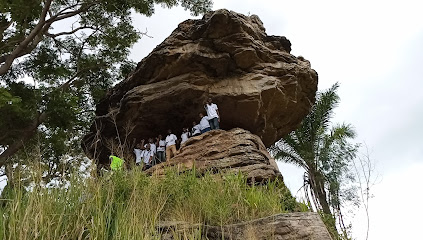
Jamestown Lighthouse
Discover the Jamestown Lighthouse, a historic landmark in Accra showcasing Ghana's maritime heritage with stunning views and vibrant local culture.
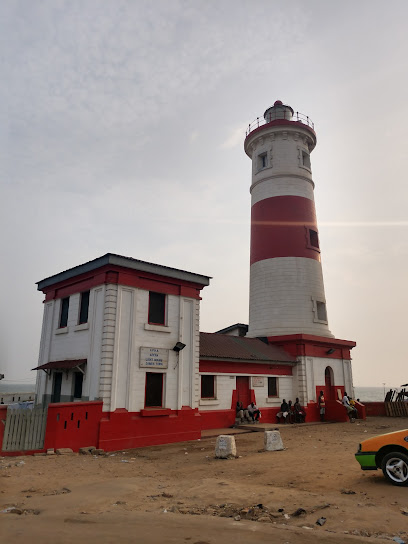
Wli Waterfalls main office
Experience the breathtaking beauty of Wli Waterfalls, Ghana's highest waterfall, nestled in lush greenery and rich biodiversity.
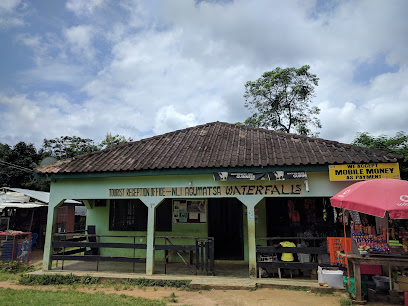
Songor Lagoon Protected Area
Discover the tranquil beauty and rich biodiversity of Songor Lagoon Protected Area, a haven for nature lovers and birdwatchers in Ghana, offering a unique cultural experience.
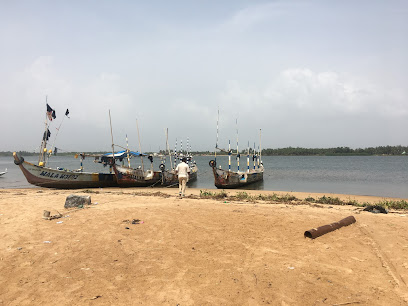
Osu Castle
Explore Osu Castle in Accra, Ghana: A historic fortress with a dark past, offering insights into the transatlantic slave trade and colonial era, now a museum and cultural landmark.
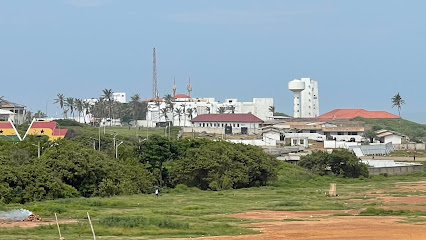
Treasure Island Ghana
Explore the tranquil beauty of Treasure Island Ghana, a unique leisure destination offering luxurious accommodations and delightful dining experiences.
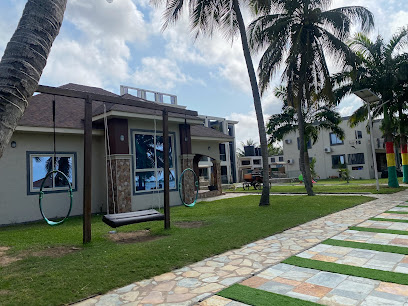
Tafi Atome Monkey Sanctuary And Cultural Village
Discover Ghana's hidden gem: Tafi Atome Monkey Sanctuary, where playful Mona monkeys and vibrant local culture create an unforgettable ecotourism experience in the heart of the Volta Region.
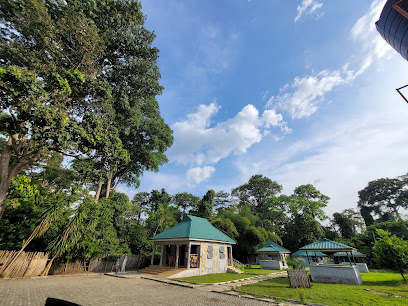
Somewhere in Sogakope
Experience authentic Ghanaian cuisine with a touch of international flair in a serene riverside setting. Fresh ingredients, friendly service, and a vibrant atmosphere await in Sogakope.
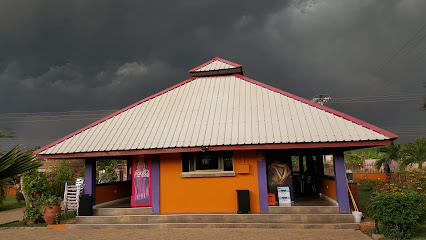
Fort Prinzenstein, Keta
Discover the rich history of Ghana at Fort Prinzenstein, a captivating site that reveals stories of resilience and maritime heritage.
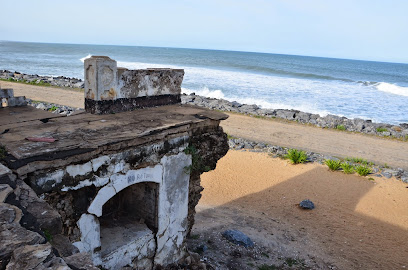
Independence Arch
Explore Independence Arch in Accra, a powerful symbol of Ghana's heritage and a must-see for every traveler seeking to understand the nation's journey to freedom.
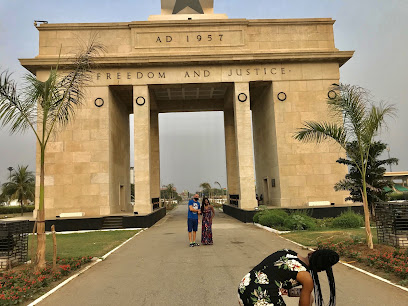
Dodi World Akosombo (Dodi Princess,Dodi Island,Boat Cruise)
Experience the beauty of Lake Volta at Dodi World Akosombo, where boat cruises and local culture create unforgettable memories.
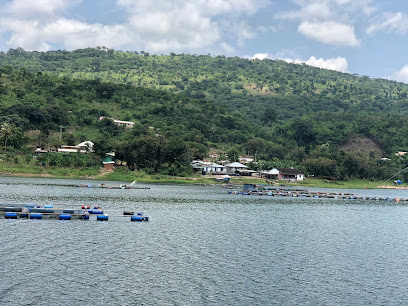
Wli Agumatsa Waterfalls
Explore the breathtaking Wli Agumatsa Waterfalls in Ghana, a natural wonder surrounded by lush landscapes and rich biodiversity.
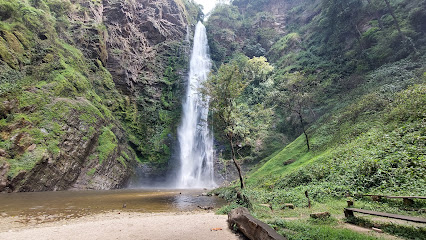
Abetifi Stone Age Park
Explore the ancient past at Abetifi Stone Age Park, where history meets breathtaking natural beauty in Ghana's scenic landscapes.
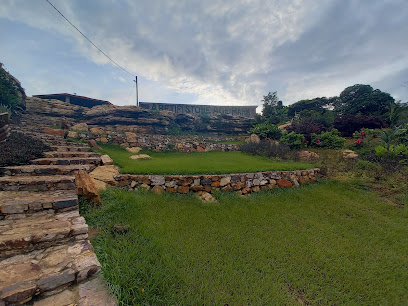
Unmissable attractions to see
Keta Lagoon Protected Area
Discover the stunning Keta Lagoon Protected Area, a haven for birdwatchers and nature lovers in Ghana's picturesque landscapes.
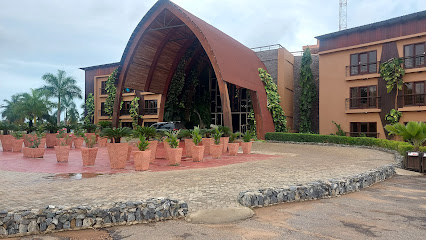
Akodessewa Fetish Market
Discover the vibrant Akodessewa Fetish Market in Lomé, a hub of culture and tradition with unique artifacts and rich local heritage.
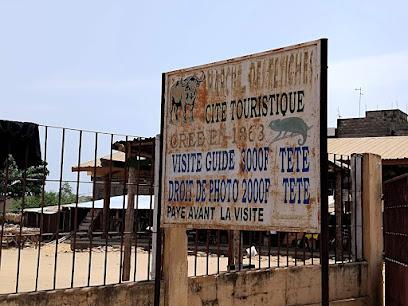
Fort Prinzenstein, Keta
Discover the rich history and picturesque views at Fort Prinzenstein in Keta, a must-visit World Heritage site on Ghana's stunning coastline.
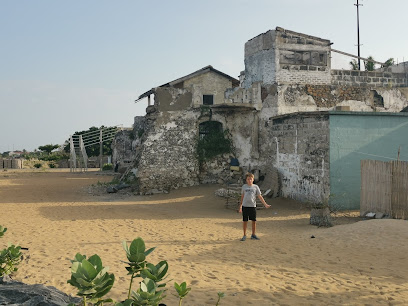
Vume Clay Deposit
Discover the vibrant artistry and stunning landscapes of Vume Clay Deposit, a unique tourist attraction in Ghana showcasing the beauty of natural clay deposits.
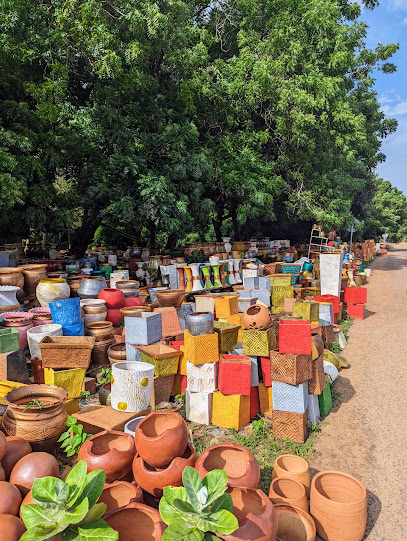
THE BREEZE BAR
Experience the vibrant atmosphere, refreshing drinks, and stunning views at The Breeze Bar in Tsrefe, a must-visit destination for tourists.
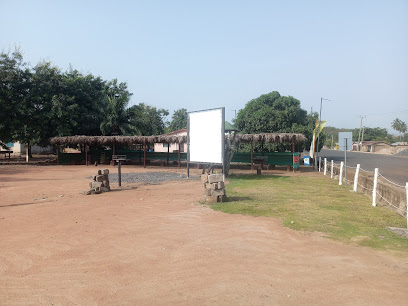
Nolopi Mission Park
Discover the serene beauty and cultural significance of Nolopi Mission Park in Avalavi, a peaceful retreat perfect for reflection and exploration.
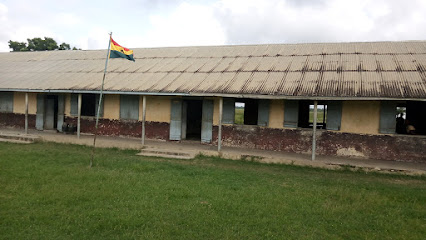
Easter In Aflao
Experience the vibrant culture and traditions at Easter In Aflao, a colorful festival in Denu, Ghana, celebrating local heritage through music, dance, and cuisine.

Fort Kongenstein
Discover Fort Kongenstein in Ada Foah, a historical fort showcasing Ghana's colonial past and stunning coastal views, perfect for history enthusiasts and explorers.
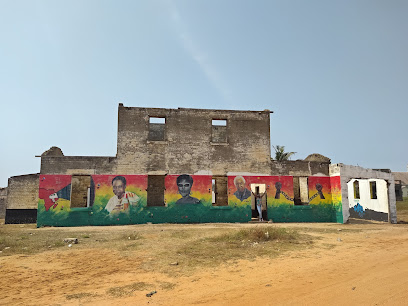
THE FIAGBENU TRIANGLE
Explore the captivating Fiagbenu Triangle in Mafi - Adidome, where nature and culture intertwine for an unforgettable Ghanaian experience.
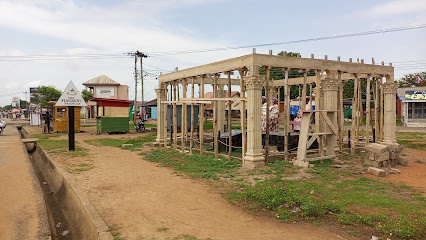
Ada island zoo
Experience the unique wildlife of Ada Island Zoo on Crocodile Island, where adventure meets conservation in beautiful Ghana.
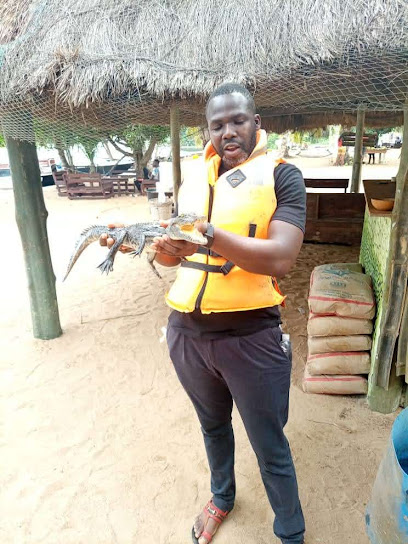
Zion Park
Explore the breathtaking landscapes and serene beauty of Zion Park in Penyi, Ghana, a perfect getaway for nature lovers and adventure seekers.
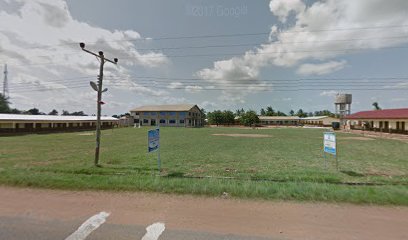
Duxornu
Discover tranquility at Duxornu Park in Anlo-Afiadenyigba, a peaceful retreat surrounded by lush greenery and nature’s beauty.

Akatsico Park
Explore Akatsico Park, a serene green space in Akatsi, Ghana, perfect for relaxation, leisurely walks, and a taste of local nature.
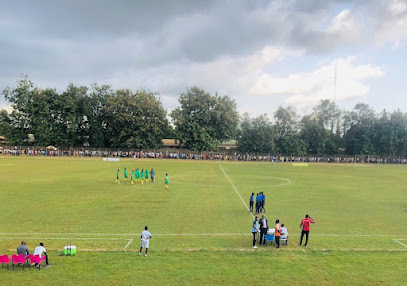
Inner-Citi Garden
Discover tranquility at Inner-Citi Garden in Alakple, a lush green haven perfect for relaxation, picnics, and experiencing Ghana's natural beauty.
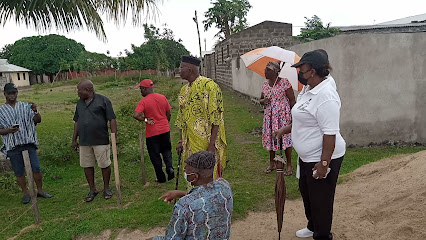
Immaculate island
Experience the tranquil beauty of Immaculate Island in Big Ada, Ghana, where pristine beaches meet rich local culture and unforgettable adventures await.

Essential places to dine
Agbenohevi Food joint
Discover the authentic taste of Ghana at Agbenohevi Food Joint in Ho - where tradition meets flavor.
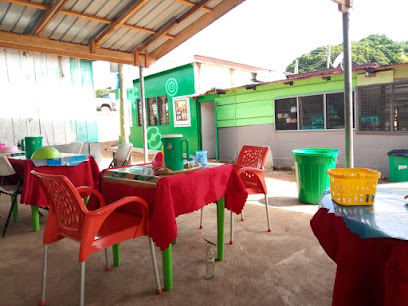
Lord's Garden Restaurant
Experience authentic Ghanaian cuisine amidst serene garden surroundings at Lord's Garden Restaurant in Ho.
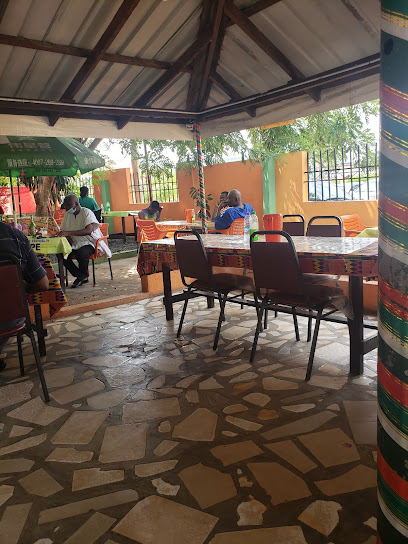
Somewhere in Sogakope
Discover authentic Ghanaian cuisine at Somewhere in Sogakope - where flavor meets culture in every dish.
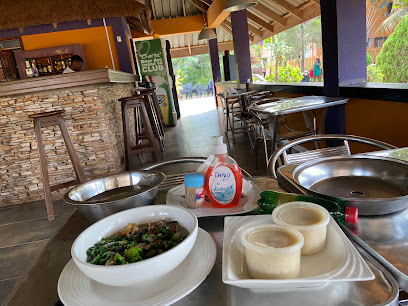
Eli-Eli Rest Stop
Discover delicious fast food and delightful breakfasts at Eli-Eli Rest Stop in Sogakope – a must-visit culinary retreat on your travels.
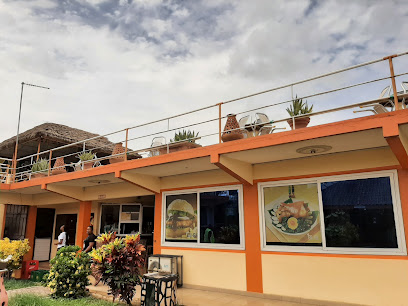
Joy Palace
Discover authentic Ghanaian flavors and international cuisine at Joy Palace - a culinary treasure in Kasseh.
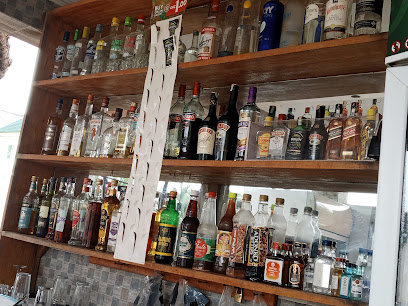
Quakuk's Buffet Restaurant
Experience a delightful culinary journey at Quakuk's Buffet Restaurant in Tema with diverse local and international flavors.
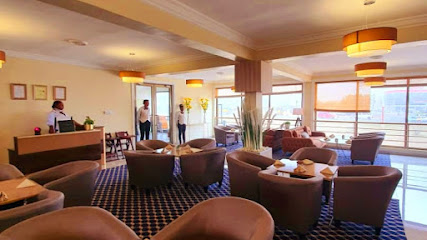
Showers Of Blessing Chop Bar
Discover authentic Ghanaian flavors at Showers Of Blessing Chop Bar in Akatsi - a culinary gem celebrating local cuisine.

Homemade Da Abra Restaurant
Experience authentic Ghanaian flavors at Homemade Da Abra Restaurant in Ho - where every meal tells a story.
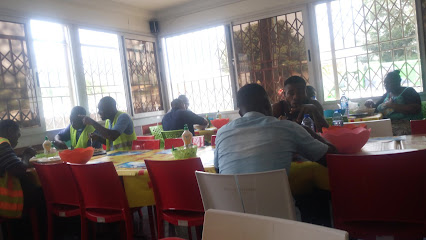
IKE CITY RESTAURANT
Experience authentic Ghanaian cuisine at IKE CITY RESTAURANT in Afienya – where every dish tells a story of flavor and tradition.
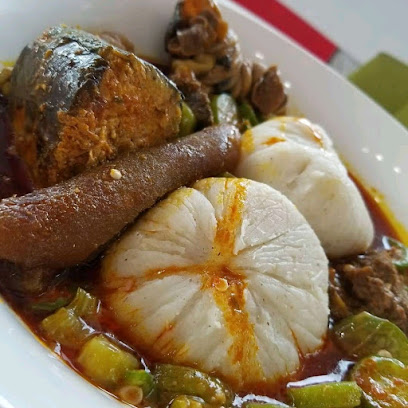
Christian Gardens Restaurant
Experience authentic Ghanaian cuisine blended with international flavors at Christian Gardens Restaurant in Ho.
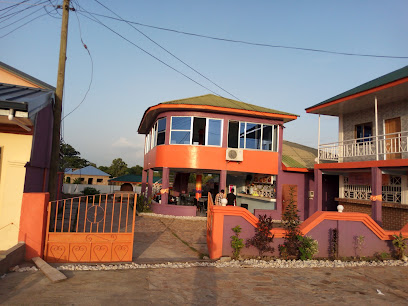
Magava Hotel
Discover authentic Ghanaian cuisine at Magava Hotel in Akatsi – where flavor meets hospitality in a vibrant setting.
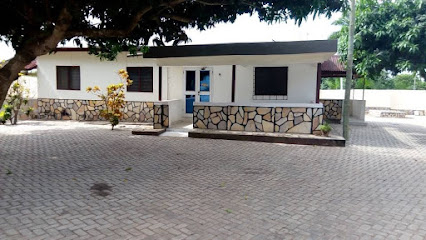
In-n-out chillies
Experience authentic Ghanaian flavors at In-n-out Chillies in Ho - a culinary delight for every traveler!
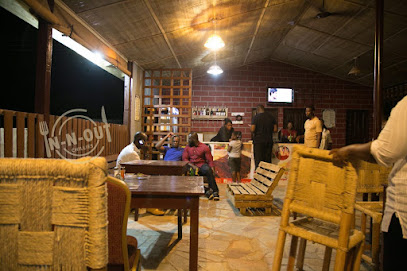
Mothers Inn Restaurant
Experience authentic Ghanaian flavors at Mothers Inn Restaurant in Ho - where delicious meals meet warm hospitality.
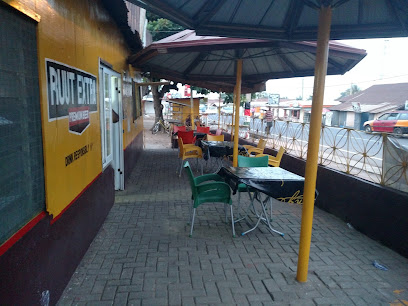
u and i restaurant
Experience authentic Ghanaian flavors at U and I Restaurant in Anloga - a must-visit for every food lover!
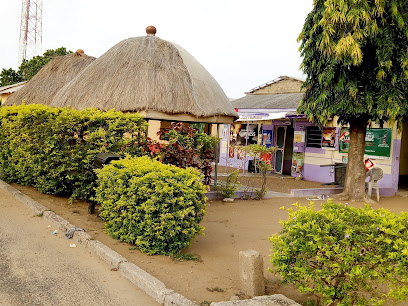
Bravos Food Restaurants (Bravos Food Golden Spoon Restaurant), Ho Volta Region, Ghana
Experience authentic Ghanaian cuisine at Bravos Food Golden Spoon Restaurant in Ho – where every meal tells a story.
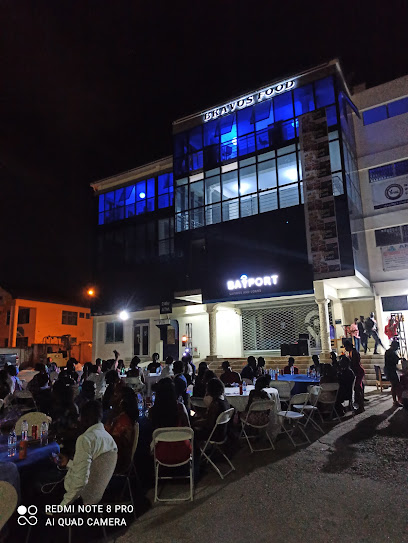
Markets, malls and hidden boutiques
AUNTY STELLA'S CLOTHING AND SUPERMARKET
Experience the vibrant shopping culture at Aunty Stella's Clothing and Supermarket in Anlo-Afiadenyigba, where local flavor meets everyday essentials.
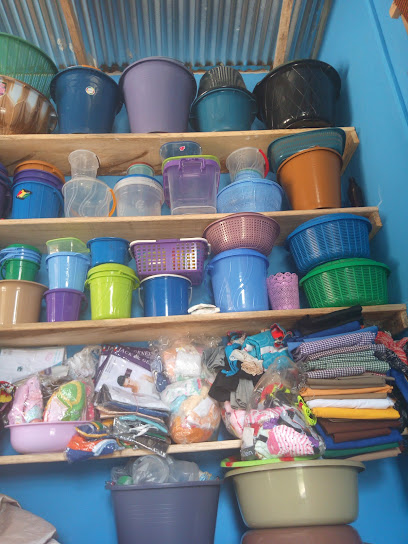
Sankorfa Stores
Discover convenience and local flavors at Sankorfa Stores in Junction, the ideal stop for tourists seeking essentials and unique local products.
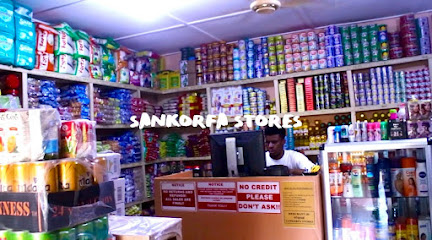
Brightway Stationery and Provision shop
Visit Brightway Stationery and Provision Shop for a taste of local flavor and everyday essentials in N1, Ghana.
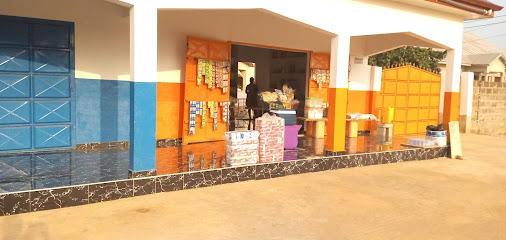
Presh Classy Palace
Experience the elegance of Presh Classy Palace in Abor, where luxury meets local craftsmanship in a boutique shopping paradise.
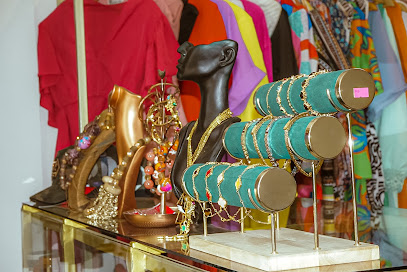
Elavanyo Store
Discover local flavors and everyday essentials at Elavanyo Store in Afife, a perfect stop for tourists wanting to connect with the community.

Dream clothing store
Explore a vibrant collection of clothing styles at Dream Clothing Store in Akatsi, where fashion meets culture and quality.
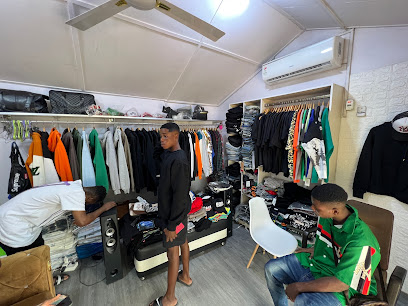
Face the future with hope
Explore local treasures at Face the Future with Hope in Akatsi, a vibrant store showcasing the rich culture and craftsmanship of the region.

Gialter’s Shop
Explore Gialter’s Shop in Akatsi for an exceptional range of cosmetics, skincare, and beauty accessories tailored for every beauty enthusiast.
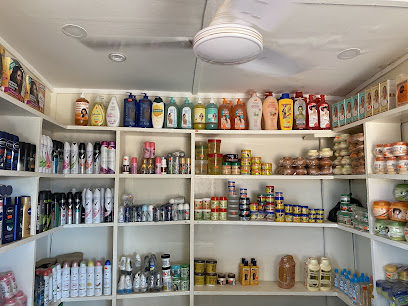
Superb collection
Explore a unique boutique in Aka, offering authentic local fashion and accessories that capture the spirit of the region.

Prefix clothing
Discover unique fashion at Prefix Clothing in Abor, where local craftsmanship meets contemporary style.
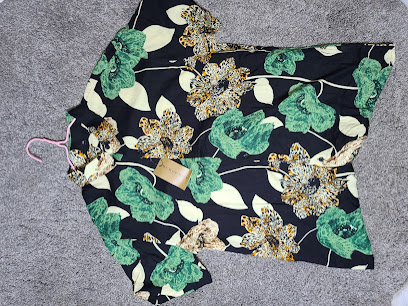
Catherine Store
Explore local flavors at Catherine Store in Abor, a grocery haven offering fresh produce and unique Ghanaian products for all visitors.

sovereignty enterprise
Discover Sovereignty Enterprise in Afife - where shopping meets culture in a vibrant community hub.
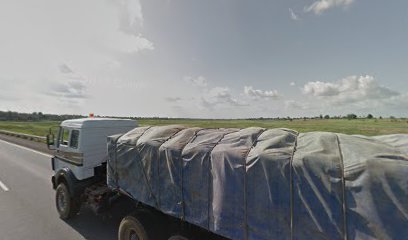
King's Collection
Explore the essence of Ghanaian fashion at King's Collection, a vibrant clothing store in Anlo-Afiadenyigba with unique local designs and styles.
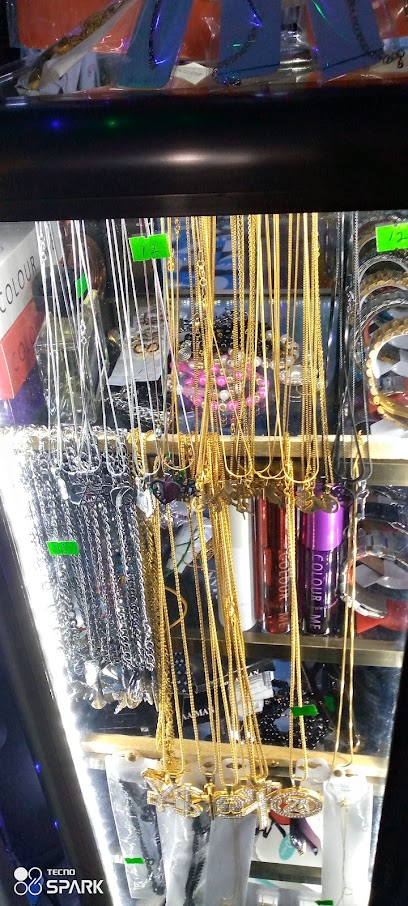
CLET SHINNING STAR VENTURES
Discover quality printing services at Clet Shinning Star Ventures in Afife, Ghana, where local craftsmanship meets exceptional customer care.
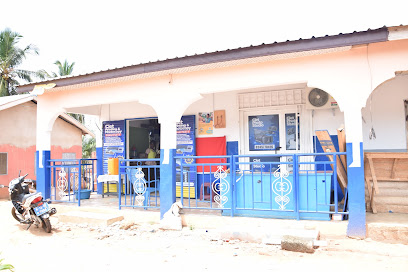
Alpha Pork Show, Aƒiƒe
Explore the delight of fresh, locally sourced meats at Alpha Pork Show, a hidden gem in Afife’s culinary scene.
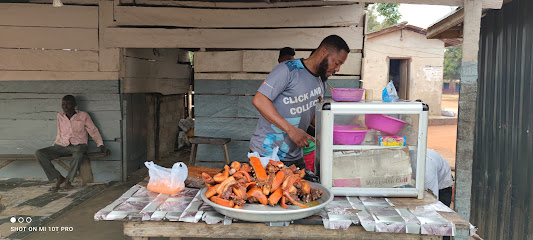
Essential bars & hidden hideouts
Sky Bar 25 Restaurant and Bar
Experience the vibrant nightlife and stunning views of Accra at Sky Bar 25, where exquisite dining meets live entertainment in an elegant setting.
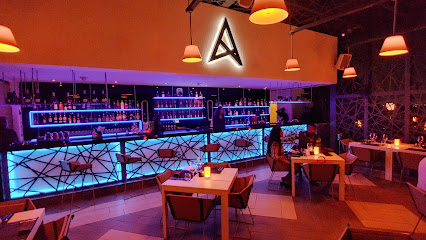
Big Bottle Pub
Experience the vibrant nightlife of Tema at Big Bottle Pub, a lively bar offering a vast selection of drinks and a friendly atmosphere.
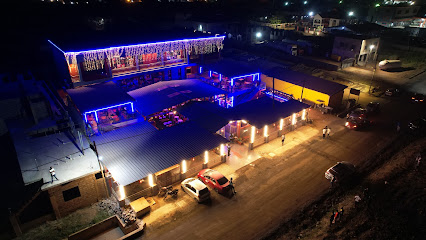
Scoops Pub
Discover the vibrant spirit of Keta at Scoops Pub, where refreshing drinks and lively entertainment create unforgettable memories.
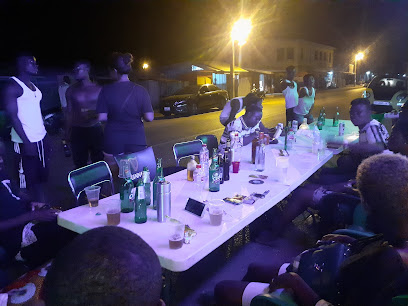
Bulova Bar
Discover the lively atmosphere and diverse drink selection at Bulova Bar, the perfect spot for tourists to experience Ghanaian nightlife.
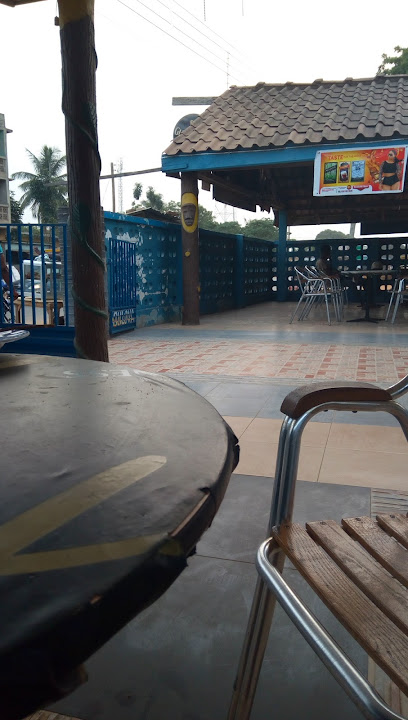
Thousand Pork Show, Afife
Explore the flavors of Afife at Thousand Pork Show, where local culinary traditions meet a vibrant dining atmosphere.
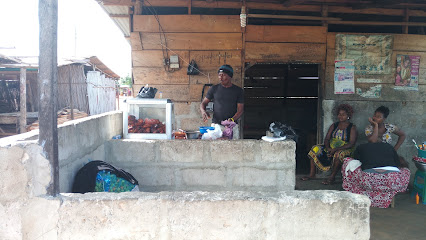
Ekui's Inn
Discover the vibrant atmosphere of Ekui's Inn, a bar in Keta where locals and tourists connect over refreshing drinks and lively conversations.
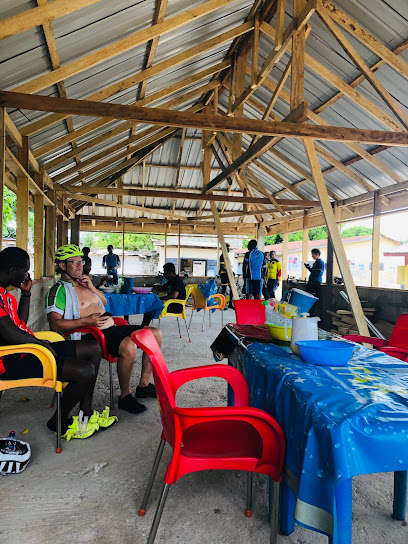
BLUE SKIES PUB
Discover the vibrant atmosphere of Blue Skies Pub in Akatsi, where refreshing drinks and local culture meet for an unforgettable experience.
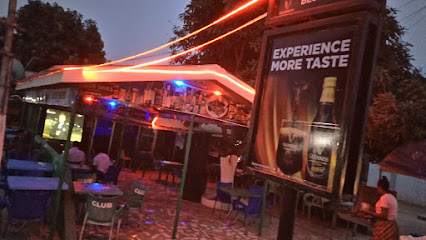
HOME BAR
Experience the vibrant atmosphere and delightful drinks at Home Bar, the perfect spot for relaxation and socializing in Abor.
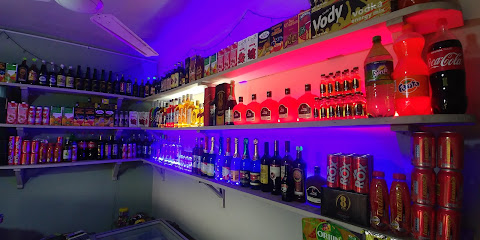
Abor Star Bar
Discover the lively Abor Star Bar, a hub of social activity offering delightful drinks and a warm atmosphere in the heart of Abor.
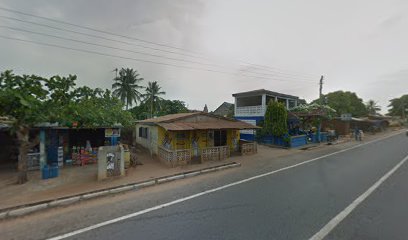
Kotoo's Inn
Discover Kotoo's Inn in Akatsi for a delightful blend of local drinks and vibrant nightlife, perfect for unwinding after a day of exploration.

SaltCity Pub
Experience the vibrant flavors of Ghana at SaltCity Pub, the ultimate bar and grill destination in Wheta, offering unforgettable dining and social experiences.

SPESS PUB
Discover the lively SPESS PUB in Keta, a local favorite with a vibrant atmosphere, perfect for enjoying drinks and mingling with locals.
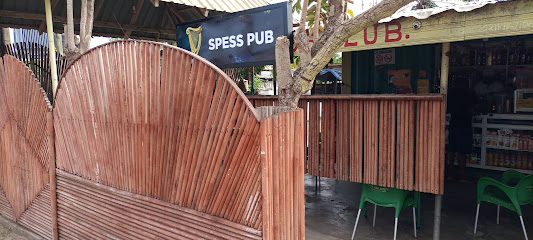
Mj Pub & Grill
Discover the vibrant nightlife at Mj Pub & Grill, where local flavors and lively entertainment combine for an unforgettable experience in Akatsi.
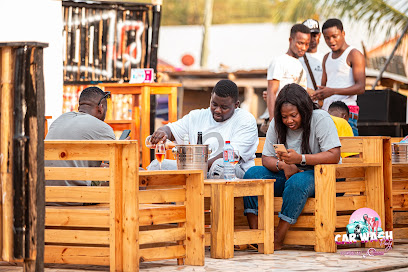
Drop Inn Beach Pub
Discover the lively Drop Inn Beach Pub in Kedzi, where local flavors, beachfront views, and vibrant music create the ultimate relaxation spot for tourists.
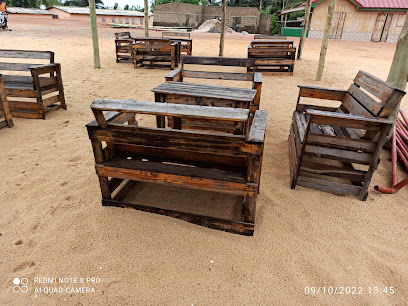
Local Phrases about Afife
-
- HelloAkwaaba
[ah-kwaa-bah] - GoodbyeKaa du
[kaa doo] - YesAane
[ah-neh] - NoDaabi
[daa-bee] - Please/You're welcomeMesere saa
[meh-seh-reh saa] - Thank youMedaase
[meh-daa-seh] - Excuse me/SorryKofi bɔ ni
[koh-fee boh nee] - How are you?Ete sɛn?
[eh-teh sen?] - Fine. And you?Ete sɛn. Na wo nso?
[eh-teh sen. nah woh en-soh?] - Do you speak English?Wo ka English?
[woh kah ing-glish?] - I don't understandMe nni hwee
[meh nee hwee]
- HelloAkwaaba
-
- I'd like to see the menu, pleaseMeyɛ nkyerɛ menu, mesere saa
[meh-yeh en-cher-eh men-oo, meh-seh-reh saa] - I don't eat meatMe nni nkontomire
[meh nee en-kon-toh-me-reh] - Cheers!Afehyia pa!
[ah-feh-yee-ah pah] - I would like to pay, pleaseMeyɛ sika, mesere saa
[meh-yeh see-kah, meh-seh-reh saa]
- I'd like to see the menu, pleaseMeyɛ nkyerɛ menu, mesere saa
-
- Help!Gyae!
[jah-yeh] - Go away!Kɔ wɔ hɔ
[koh woh hoh] - Call the Police!Kyerɛ nnidiso!
[cher-eh nee-dee-so] - Call a doctor!Kyerɛ dɔkita!
[cher-eh doh-kee-tah] - I'm lostMeyɛ ntetee
[meh-yeh en-teh-teh] - I'm illMeyɛ nkwa
[meh-yeh en-kwah]
- Help!Gyae!
-
- I'd like to buy...Meyɛka...
[meh-yeh-kah] - I'm just lookingMe nni nsawam
[meh nee en-sah-wahm] - How much is it?Agya mpo ni?
[ah-jah m-poh nee?] - That's too expensiveAgya yɛ sɛn
[ah-jah yeh sen] - Can you lower the price?Wo pɛ sika ma wo ho
[woh peh see-kah mah woh hoh]
- I'd like to buy...Meyɛka...
-
- What time is it?Agya sɛn?
[ah-jah sen?] - It's one o'clockAgya yɛ sɛn
[ah-jah yeh sen] - Half past (10)Agya nna ho
[ah-jah en-nah hoh] - MorningAnɔpa
[ah-noh-pah] - AfternoonAwia
[ah-wee-ah] - EveningAnwummere
[ah-woom-meh-reh] - YesterdayNkrabea
[en-krah-beh-ah] - TodayNnɛ
[en-neh] - TomorrowƐbɔ
[eh-boh] - 1Pɛ
[peh] - 2Mfi
[m-fee] - 3Muru
[moo-roo] - 4Nan
[nahn] - 5Nnɔnɔ
[n-noh-noh] - 6Nnum
[n-noom] - 7Nanani
[nah-nah-nee] - 8Nnanan
[n-nah-nahn] - 9Nnawɔtwe
[n-nah-woh-tweh] - 10Gumi
[goo-mee]
- What time is it?Agya sɛn?
-
- Where's a/the...?Ɛwɔ...?
[eh-woh?] - What's the address?Adɛn nso a yɛn adɛn?
[ah-den en-so ah yehn ah-den?] - Can you show me (on the map)?Wo pɛ sɛ wobɛkɔ me?
[woh peh seh woh-beh-koh meh?] - When's the next (bus)?Ayɛ adiɛ ho?
[ah-yeh ah-dee-eh hoh?] - A ticket (to ....)Nkɔtɔ
[en-koh-toh]
- Where's a/the...?Ɛwɔ...?
History of Afife
-
Afife, a quaint town in the Volta Region of Ghana, traces its origins back to the early 17th century. The Ewe people, who migrated from Notsie in present-day Togo, were among the first settlers. They established a community that thrived on agriculture and fishing, leveraging the fertile lands and abundant water sources in the area.
-
During the late 19th and early 20th centuries, Afife, like many parts of Ghana, came under British colonial rule. The colonial administration introduced new agricultural techniques and infrastructure, including roads and schools. While this period brought some modernization, it also disrupted traditional governance and imposed new economic pressures on the local population.
-
After Ghana gained independence in 1957, Afife experienced significant changes. The government launched various rural development programs aimed at improving living standards. This era saw the construction of modern facilities, including health centers and educational institutions, which transformed Afife into a more vibrant and accessible community.
-
Afife is rich in cultural traditions, with music, dance, and festivals playing a central role in community life. One of the most notable celebrations is the Hogbetsotso Festival, which commemorates the migration of the Ewe people from Notsie. This event features traditional music, dance, and storytelling, offering a deep dive into the area's rich heritage.
-
Agriculture remains a cornerstone of Afife's economy, with the town known for its production of maize, cassava, and vegetables. In recent years, there has been a push towards sustainable farming practices and diversification into other sectors such as aquaculture and small-scale manufacturing, driving economic growth and enhancing food security.
-
Afife is blessed with natural beauty, including lush landscapes and serene water bodies. The Volta River, which flows nearby, offers opportunities for fishing, boating, and eco-tourism. The town's commitment to preserving its natural environment has made it a haven for nature lovers and those seeking tranquility away from bustling city life.
-
In recent decades, Afife has seen substantial infrastructure development. Improvements in road networks, electricity, and telecommunications have enhanced connectivity and accessibility. This progress has facilitated better trade relations, tourism, and overall quality of life for residents and visitors alike.
Afife Essentials
-
Afife is located in the Volta Region of Ghana. The nearest major airport is Kotoka International Airport in Accra, which is approximately 180 kilometers away. From Accra, you can travel to Afife by bus or taxi. The journey typically takes around 3 to 4 hours by road, depending on traffic. There are also private car hire services available for a more comfortable trip.
-
Afife is a small town, and most of its attractions are within walking distance. For longer trips, local taxis and motorbikes (okadas) are readily available and relatively inexpensive. Public minibuses (trotros) operate within the town and connect to nearby villages. Renting a car can also be a convenient option for exploring the surrounding areas at your own pace.
-
The official currency in Ghana is the Ghanaian Cedi (GHS). Credit cards are accepted in some hotels, restaurants, and shops, but it is advisable to carry cash, especially in smaller establishments and rural areas. ATMs are available in nearby towns, but it is wise to withdraw sufficient cash in Accra before traveling to ensure you have enough funds.
-
Afife is generally a safe destination for tourists. However, like any travel destination, it is advisable to take standard precautions. Avoid walking alone at night in unfamiliar areas and keep an eye on your belongings in crowded places. There are no specific high-crime areas targeting tourists, but it is always best to stay vigilant and aware of your surroundings.
-
In case of emergency, dial 191 for police assistance and 193 for medical emergencies. The local police station and a small clinic are available in Afife. It is recommended to have travel insurance that covers medical emergencies. For minor health issues, there are pharmacies in the town where you can purchase over-the-counter medications.
-
Fashion: Do dress modestly, especially when visiting religious sites. Avoid wearing revealing clothing. Religion: Do respect local customs and traditions. Always cover your head when entering religious buildings. Public Transport: Do be respectful and give up your seat to elderly passengers. Don't eat or drink on public transport. Greetings: Do greet people with a handshake. It is customary to ask about someone's health and family. Eating & Drinking: Do try local delicacies and accept food offerings graciously. Don't refuse hospitality, as it is considered impolite.
-
To experience Afife like a local, visit the local markets where you can buy fresh produce and traditional Ghanaian goods. Engage with locals, as they are often friendly and willing to share stories about the town's history and culture. Don't miss visiting the beautiful Afife Forest Reserve for a nature walk. For a unique experience, participate in a traditional Ewe dance or attend a local festival to immerse yourself in the culture.
Trending Landmarks in Afife
-
Elmina Castle
-
Kwame Nkrumah Memorial Park & Mausoleum
-
Boti Waterfalls
-
Jamestown Lighthouse
-
Wli Waterfalls main office
-
Songor Lagoon Protected Area
-
Osu Castle
-
Treasure Island Ghana
-
Tafi Atome Monkey Sanctuary And Cultural Village
-
Somewhere in Sogakope
-
Fort Prinzenstein, Keta
-
Independence Arch
-
Dodi World Akosombo (Dodi Princess,Dodi Island,Boat Cruise)
-
Wli Agumatsa Waterfalls
-
Abetifi Stone Age Park
Nearby Cities to Afife
-
Things To Do in Aneho
-
Things To Do in Ho
-
Things To Do in Kpalimé
-
Things To Do in Notse
-
Things To Do in Lokossa
-
Things To Do in Koforidua
-
Things To Do in Ouidah
-
Things To Do in Accra
-
Things To Do in Atakpamé
-
Things To Do in Cotonou
-
Things To Do in Porto-Novo
-
Things To Do in Cape Coast
-
Things To Do in Lagos
-
Things To Do in Kumasi
-
Things To Do in Abeokuta





